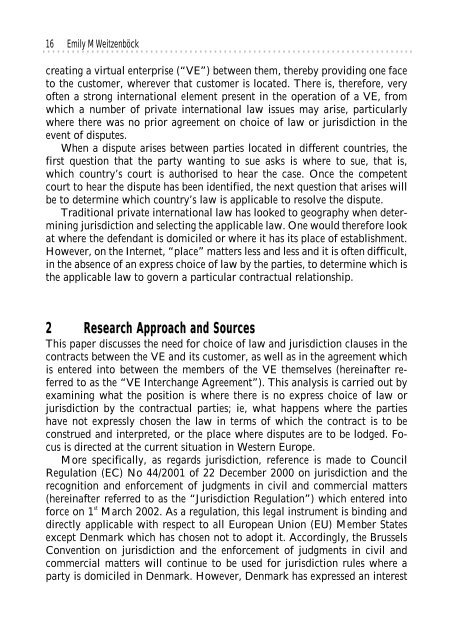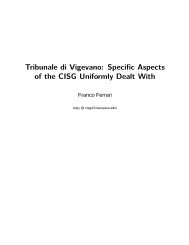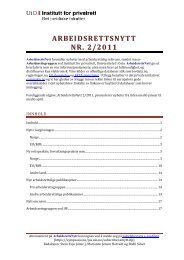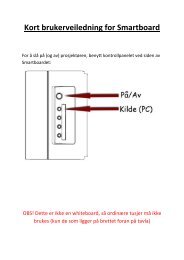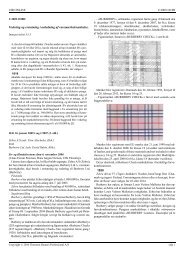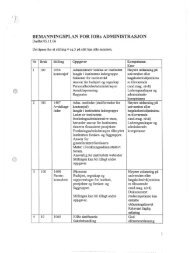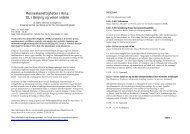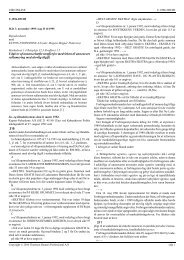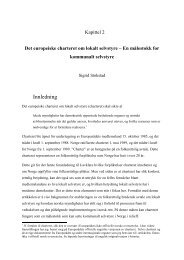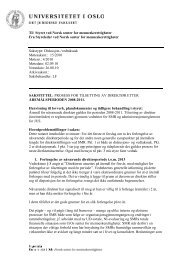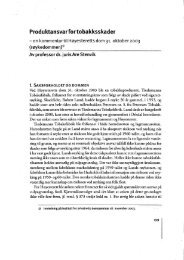Lee A. Bygrave (red.) YULEX 2002 - Universitetet i Oslo
Lee A. Bygrave (red.) YULEX 2002 - Universitetet i Oslo
Lee A. Bygrave (red.) YULEX 2002 - Universitetet i Oslo
You also want an ePaper? Increase the reach of your titles
YUMPU automatically turns print PDFs into web optimized ePapers that Google loves.
............................................................................<br />
16 Emily M Weitzenböck<br />
creating a virtual enterprise (“VE”) between them, thereby providing one face<br />
to the customer, wherever that customer is located. There is, therefore, very<br />
often a strong international element present in the operation of a VE, from<br />
which a number of private international law issues may arise, particularly<br />
where there was no prior agreement on choice of law or jurisdiction in the<br />
event of disputes.<br />
When a dispute arises between parties located in different countries, the<br />
first question that the party wanting to sue asks is where to sue, that is,<br />
which country’s court is authorised to hear the case. Once the competent<br />
court to hear the dispute has been identified, the next question that arises will<br />
be to determine which country’s law is applicable to resolve the dispute.<br />
Traditional private international law has looked to geography when determining<br />
jurisdiction and selecting the applicable law. One would therefore look<br />
at where the defendant is domiciled or where it has its place of establishment.<br />
However, on the Internet, “place” matters less and less and it is often difficult,<br />
in the absence of an express choice of law by the parties, to determine which is<br />
the applicable law to govern a particular contractual relationship.<br />
2 Research Approach and Sources<br />
This paper discusses the need for choice of law and jurisdiction clauses in the<br />
contracts between the VE and its customer, as well as in the agreement which<br />
is ente<strong>red</strong> into between the members of the VE themselves (hereinafter refer<strong>red</strong><br />
to as the “VE Interchange Agreement”). This analysis is carried out by<br />
examining what the position is where there is no express choice of law or<br />
jurisdiction by the contractual parties; ie, what happens where the parties<br />
have not expressly chosen the law in terms of which the contract is to be<br />
construed and interpreted, or the place where disputes are to be lodged. Focus<br />
is directed at the current situation in Western Europe.<br />
More specifically, as regards jurisdiction, reference is made to Council<br />
Regulation (EC) No 44/2001 of 22 December 2000 on jurisdiction and the<br />
recognition and enforcement of judgments in civil and commercial matters<br />
(hereinafter refer<strong>red</strong> to as the “Jurisdiction Regulation”) which ente<strong>red</strong> into<br />
force on 1 st March <strong>2002</strong>. As a regulation, this legal instrument is binding and<br />
directly applicable with respect to all European Union (EU) Member States<br />
except Denmark which has chosen not to adopt it. Accordingly, the Brussels<br />
Convention on jurisdiction and the enforcement of judgments in civil and<br />
commercial matters will continue to be used for jurisdiction rules where a<br />
party is domiciled in Denmark. However, Denmark has expressed an interest


